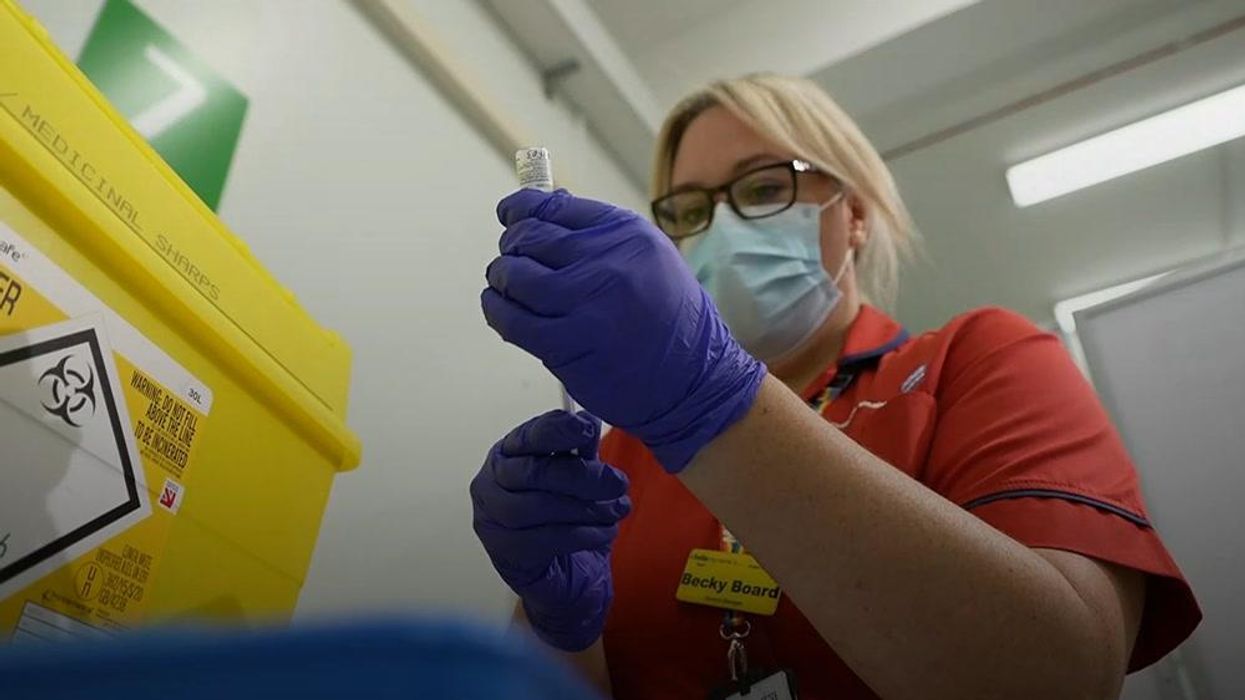Traces of polio have been detected in several sewage samples collected from the London Beckton Sewage Treatment Works between February and May of this year. They serve around four million people in north and east London.
Despite eradication in recent years, the polio virus is a deadly illness which wreaked havoc in the UK in the 1950s. During this time, the UK experienced around 8,000 people suffering from paralytic poliomyelitis.
The UKHSA stressed that the virus has only been detected in sewage samples, and no cases of paralysis have been reported. Though, scientists have urged people to ensure their polio vaccines are up to date.
While polio is extremely rare now due to the success of the polio vaccine, it is spread through bodily fluids. An infected person can spread it by coughing or sneezing. People can also catch it by coming into contact with the faeces of an infected person.
The symptoms are:
- High temperature
- Extreme fatigue
- Headaches
- Vomiting
- Neck stiffness
- Muscle pain
Sign up to our free Indy100 weekly newsletter
How worried should we be?
Health chiefs say the discovery is of “concern but the current risk [of the virus spreading] is low”. About 15 per cent of London teenagers have not had their two boosters. It is children and teenagers who are unvaccinated that are at risk.
Health Secretary Sajid Javid said he was “not particularly worried” about the detection of poliovirus.
He told BBC Radio 4’s PM programme that UKHSA “reminded me that as a country we have very high vaccination rates against polio. We’ve been declared polio-free since 2003, and we haven’t had any cases since then”.
Dr Vanessa Saliba, the consultant epidemiologist at UKHSA, said: “Vaccine-derived poliovirus is rare, and the risk to the public overall is extremely low.
“Vaccine-derived poliovirus has the potential to spread, particularly in communities where vaccine uptake is lower.
“On rare occasions, it can cause paralysis in people who are not fully vaccinated, so if you or your child are not up to date with your polio vaccinations, it’s important you contact your GP to catch up or, if unsure, check your red book.
“Most of the UK population will be protected from vaccination in childhood, but in some communities with low vaccine coverage, individuals may remain at risk.
“We are urgently investigating to better understand the extent of this transmission and the NHS has been asked to swiftly report any suspected cases to the UKHSA, though no cases have been reported or confirmed so far.”
Most people who get polio do not have symptoms, but some suffer mild, flu-like issues such as a high temperature, extreme tiredness, headaches, vomiting, a stiff neck and muscle pain.
In one in 100 to one in 1,000 infections, the polio virus attacks the nerves in the spine and base of the brain. This can cause paralysis, usually in the legs, that develops over hours or days.
If the breathing muscles are affected, polio can be life-threatening.
Medics have now been alerted by UKHSA to look for signs of polio paralysis.
Urgent medical attention should be sought if people experience a rapid onset of weakness in a limb, which will be floppy, or difficulties with breathing.
The last case of natural polio infection acquired in the UK was in 1984.
Have your say in our news democracy. Click the upvote icon at the top of the page to help raise this article through the indy100 rankings.














